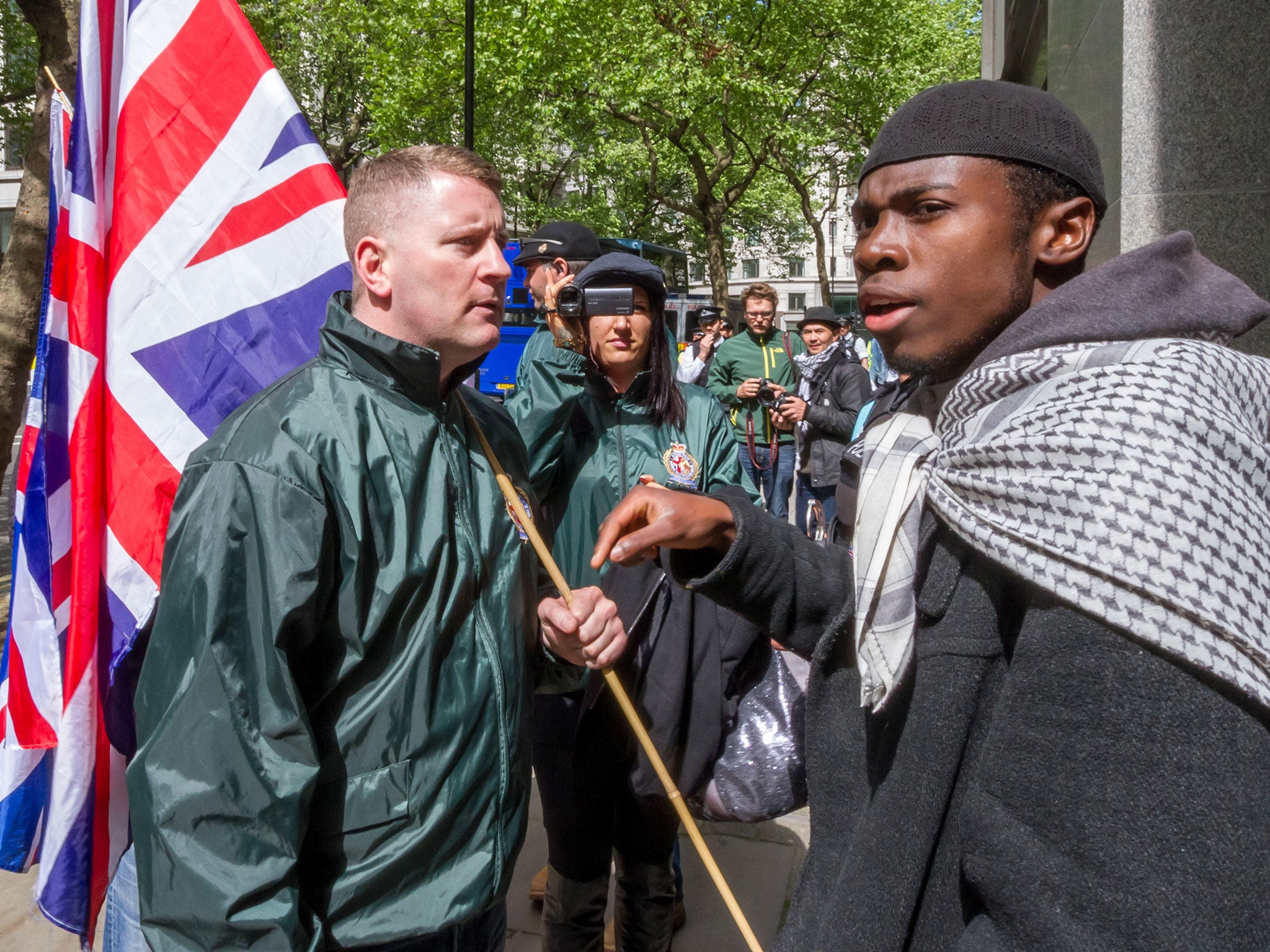Britain First far-right group claims to be 'first political party' to reach 1 million likes on Facebook
But there are questions over the influence the group actually holds

Britain First claims to have become the first political party in the UK to receive more than 1 million supporters on its official Facebook profile.
The far-right group boasted of the milestone on its website, proclaiming “genuine popular support of its ideals, policies and views”.
In the last week alone, the group has been asked to remove two photographs of British soldiers and Sea Cadets respectively by people who did not want to be associated with its messages.
While its rallies and public events tend to be very poorly attended, Britain First has become well-known for its far-reaching posts on social media, which combine patriotic celebrations of the Queen and Armed Forces with xenophobic and Islamophobic fear-mongering.
The group proclaimed that its “likes” on Facebook mean it is now “almost twice as big as [its] nearest competitor” on the site, with the Conservative Party receiving 540,000 supporters and Labour 400,000.
But many have questioned the validity and importance of the group’s Facebook following, which suddenly ballooned over the course of a month in early 2014 and has been rising ever since.
Britain First posts extremely regularly on the site when compared to the likes of Labour, the Liberal Democrats or the Tories and, unlike them, mainly posts populist sentiments which have little to do with its more controversial core messaging.
Matthew Collins, a member of the organisation Hope Not Hate who has been following the far-right group for a number of years, estimated that less than a third of Britain First’s Facebook followers were genuine users.
“A lot of it is dishonest because people don’t even realise they are signing up to the group,” he told The Independent, describing how the group asks simple questions such as “do you think dog fighting should be banned?” to get people to give up their details or click “like” online.
Mr Collins said Britain First could be distinguished from the political parties they claim as competitors by their “persistent message of gloom, death and destruction”.
“They don’t really have any traction in terms of positive messages, they have very little footprint in the real world and no engagement at all in real politics. Their candidate in the Rochester by-election received just 56 votes.”
Mr Collins said that even if the group had only around 300,000 genuine “likes” on Facebook it was “still worrying”.
“But politics is about a lot more than just a page on Facebook. There are other far-right groups out there doing a lot worse, and genuine political groups doing a lot more.”
Subscribe to Independent Premium to bookmark this article
Want to bookmark your favourite articles and stories to read or reference later? Start your Independent Premium subscription today.

Join our commenting forum
Join thought-provoking conversations, follow other Independent readers and see their replies